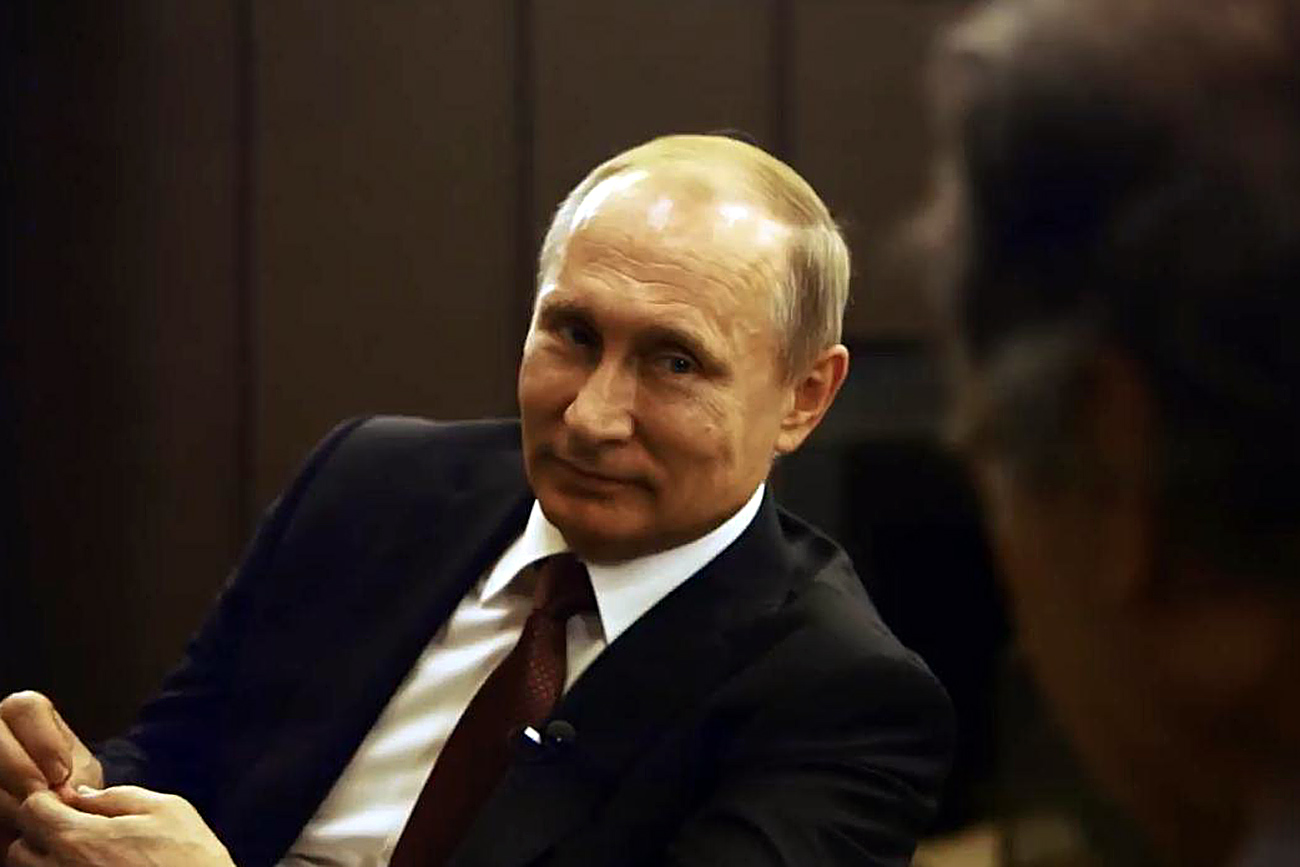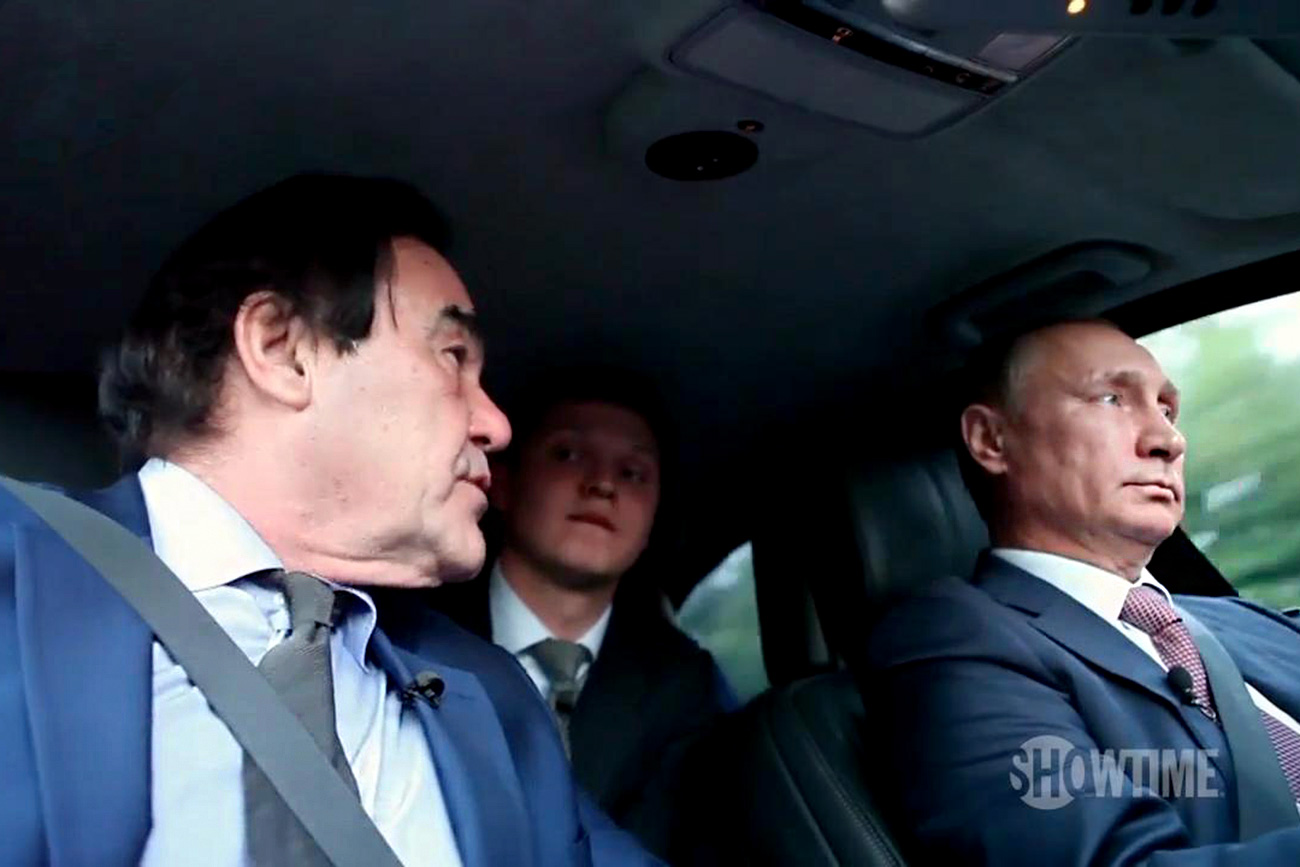Oliver Stone's 'The Putin Interviews': Crimea, Ukraine, and Syria

The Putin Interviews
SHOWTIME/YouTubeSource: Showtime/YouTube
In the third episode of The Putin Interviews, broadcast on June 14, Russian President Vladimir Putin talks to film director Oliver Stone about the main global developments in which Russia has been involved in the past few years: The Ukrainian crisis and the Syrian civil war. What does Putin have to say about these?
'Americans mounted the horse of Ukrainian discontent'
To begin the discussion over the crisis of power in Ukraine in late 2013 and early 2014, which resulted in the toppling of President Viktor Yanukovych, Russia's reunification with Crimea, and civil war in the east of the country, Putin acknowledges that the Ukrainians are sincerely striving to become part of the European Union.
He stresses that the scale of corruption and inequality in Ukraine following the country's independence in the 1990s topped that in Russia: "Certainly the people thought that moving towards the EU would liberate them from the terrible conditions they had found themselves in starting from the 1990s."
At the same time, Putin believes, Yanukovych's decision to sign an association agreement with the EU in 2013 was unfair to Russia. This would effectively open the markets of Russia, which had a zero customs tariff policy with Ukraine, to EU commodities, therefore threatening Russian manufacturers.
After Yanukovych, on consulting Putin, postponed the signing of the association agreement, popular unrest began in Kiev, supported by the West: "Our European and American partners managed to mount this horse of public discontent and instead of trying to find out what was really happening they decided to support the coup d’état."
In Putin's opinion, what happened in Ukraine in 2014 was a violent coup involving right-wing radicals. Mistakes committed by the new Ukrainian government, including its attempts to apply pressure to the Russian-speaking population in eastern regions, threw the country into chaos and de-facto civil war. Putin believes that the West is partly to blame for what happened.
'We were not the ones to annex Crimea'
"Looking back, did you make a mistake by annexing Crimea [in 2014]?" Stone asks Putin, pointing out the move's negative consequences to Russia in the form of Western sanctions and an increase in international tensions. Putin replies, smiling: "It was not Russia that annexed Crimea; it was the Crimean parliament, elected back under Ukrainian rule, that decided to hold a referendum on joining Russia. The result is well known: Over 96 percent cast their votes in favor of Crimea joining Russia."
As for the Russian soldiers without insignia who cropped up in Crimea shortly before the referendum, Putin stresses that their only objective was to ensure the security of the Crimeans, who were potentially under threat from Ukrainian nationalists: "The people had to feel that they were safe," he says.
After Russia's reunification with Crimea, relations between Moscow and Kiev worsened dramatically. Nevertheless, Putin believes that they will become better sooner or later: "We have thousands of ties to Ukraine. We are not simply related to the Ukrainian people, we are almost the same."
'In Syria, we should prevent terrorists from getting any stronger'
In one scene, we see Putin and Stone in the presidential command operations center, which the head of state uses to communicate with the Russian military headquarters in Syria and receive round-the-clock updates on the progress of Russia's military operation there.
Asked why Russia got involved in the Syrian crisis, Putin says its main objective is to prevent a replication of the Iraqi and Libyan scenarios in Syria: Both countries were hit by chaos after their authoritarian leaders were ousted.
"We also have some practical objectives," Putin says. He explains that thousands of Russians and natives of Central Asian countries are fighting in Syria for Islamic State and other terrorist groups. These people need to be prevented from returning to Russia - he states.
Putin is convinced that Russia is the only country with legitimate presence in Syria: Its troops were invited by the legitimate Syrian leadership, the Bashar al-Assad government. He does note however: "At the same time, we understand fully well that the current leadership of Syria has made certain mistakes in building relations within their own country."
Putin stresses that in Syria, Russia continues to cooperate with the U.S. and with the regional powers fighting terrorism, because defeating terrorism remains the key objective.
Read more: 'The Putin Interviews' with Oliver Stone: What we learnt from Part 1>>>
If using any of Russia Beyond's content, partly or in full, always provide an active hyperlink to the original material.
Subscribe
to our newsletter!
Get the week's best stories straight to your inbox
